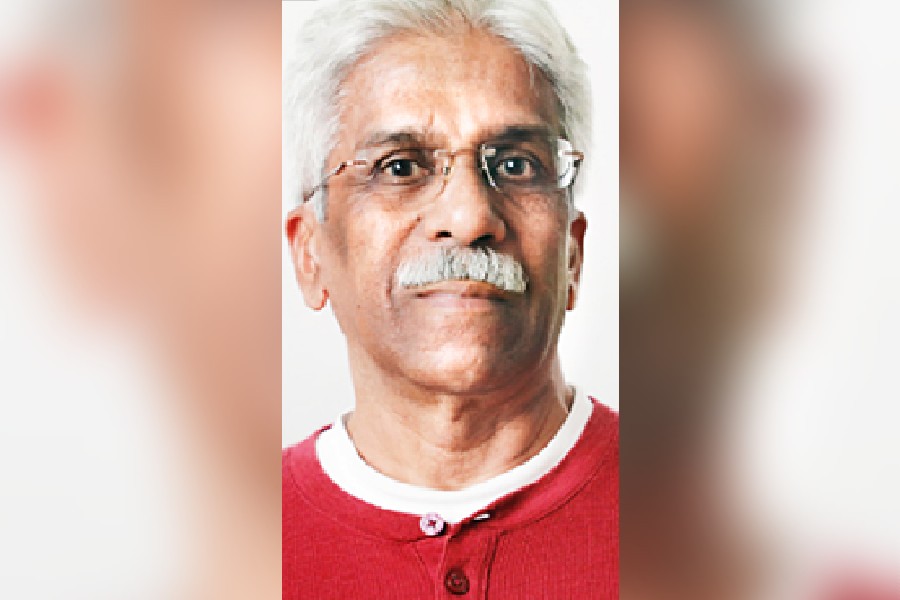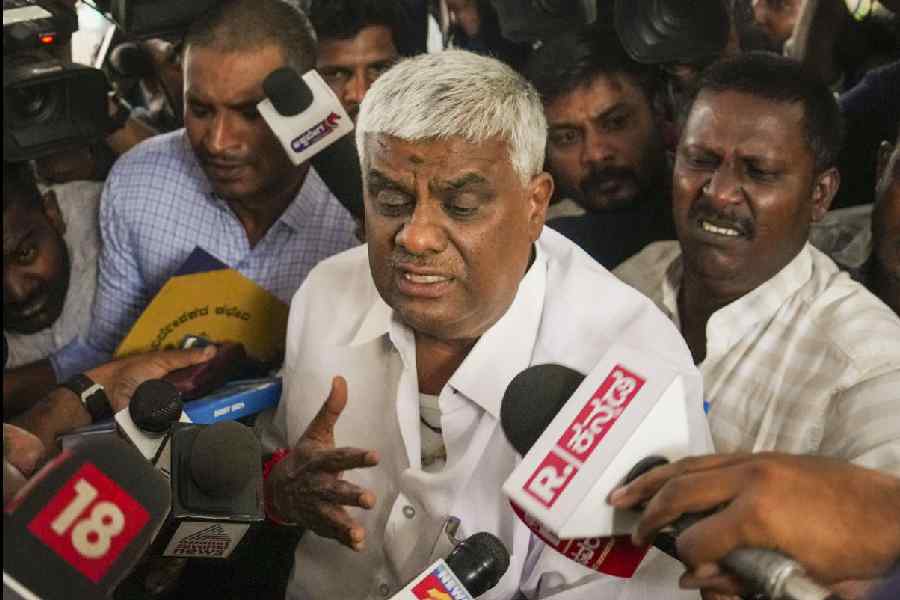Economist Pulapre Balakrishnan told Ashoka University on Saturday that he quit because “academic freedom was violated in the response” of the varsity to a controversy over the working paper of another professor and “it would be unconscionable for me to remain”.
In a letter addressed to chancellor Rudrangshu Mukherjee and founder Pramath Raj Sinha, with copies marked to all university employees, Balakrishnan wrote:
“News is that the governing body has decided to invite young Sabyasachi Das
to return to the post from which he had resigned. If this is correct, I appreciate the gesture. If not, I would request you as leaders of this community to consider doing just
that. As for myself, I am moving on.”
Balakrishnan wrote: “I have resigned my position based on my belief that there was a grave error of judgment in the response to the attention received by Das’s paper on social media. Academic freedom was violated in the response, and it would be unconscionable for me to remain.”
News of Balakrishnan’s resignation broke soon after Ashoka vice-chancellor Somak Raychaudhury announced on Monday the acceptance of the resignation of Das, the assistant professor of economics whose working paper on the 2019 general election result has found itself at the centre of a storm.
Das’s unpublished paper, “Democratic Backsliding in the World’s Largest Democracy”, uses mathematical tests to say that “the incumbent party in 2019 won a disproportionate share of closely contested elections”. Disclaimers in the paper — presented at the National Bureau of Economic Research in the US last month — include that these wins would not have changed the overall result of the Lok Sabha polls and that these tests were not proof of fraud.
After the paper became a topic of heated debate, especially between the Congress and the BJP, Ashoka University put out an unprecedented statement saying that “the paper in question has not yet completed a critical review process” and that social media activity or activism by Ashoka employees or students “does not reflect the stand of the University”.
Ashoka’s governing body (G.B.), of which Mukherjee and Sinha are part, also
initiated an inquiry on the paper.
On Wednesday, the economics department gave the G.B. until August 23 to
accept two demands: offer Das the job he quit, and that the G.B. stop evaluating faculty research. Else, teachers cannot “carry forward their teaching obligations”. The economics department has found support from many other departments of the private varsity in Haryana’s Sonepat district.
The Ashoka management has not said anything publicly on these demands. Vice-chancellor Raychaudhury has not yet replied to emails from this newspaper.
Earlier this week, this paper had reported that the G.B. had instituted an inquiry into Das’s paper, which is considered a breach of academic freedom. A non-academic member was also on the inquiry panel.
On Saturday evening the economics department called off its protest. The department’s handle on X (formerly Twitter) posted that although their demands stand, “the welfare of students is of utmost priority to the Economics department. Therefore, teaching at no point will be disrupted. While we carry on with our academic responsibilities, we reserve the right to protest in other ways.... We have had meetings with the GB members and the VC and have been assured that a resolution is underway.”
In his letter, seen by The Telegraph, Balakrishnan mentioned that in the eight years that he worked for Ashoka, the university did not place the “slightest restraint” in his path. He said: “The University also bank-rolled (I am an economist, after all) the publication of my book ‘India’s Economy from Nehru to Modi’…. I offer to the University’s library my personal collection of books.”
Balakrishnan wrote: “I was among the first faculty representatives of the IIM Kozhikode, have headed an autonomous economics research institute in the
public sector and now run a modest private educational trust. In all these situations I have seen how terrifying it can be to deal with the government.”
He added: “As I continue to speak in future, some attention may inadvertently be drawn to Ashoka. However, anyone reading this document, which I intend to make public at some stage, cannot but recognise the brave and selfless attempt to provide India with a thriving space for intellectual activity that it represents.”
In 2021, political scientist Pratap Bhanu Mehta quit Ashoka, saying that the founders of the varsity had made it clear to him that he is a “political liability”.
Economist Arvind Subramanian resigned in solidarity with Mehta, who was seen as a victim of intolerance against his newspaper columns criticising the BJP.










